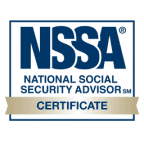Healthcare and health insurance usually come with scams and false claims. And, unfortunately, a lot of senior citizens fall victim each year to Medicare scams.
There are different types of Medicare scams. Using identity theft to get treatment with the victim’s information is an example of a Medicare scam. This could lead to increased costs, especially for people who are enrolled in Medicare Advantage plans with an annual cap on services.
Watch Your Billing
In billing scams, medical professionals can bill Medicare for healthcare services or medical equipment that you did not receive. In other cases, a scammer can also pose as a healthcare provider or medical office and send a fake health bill. Enrollees who do not verify the bills they receive can fall victim to these kinds of scams. To avoid this, make sure you do not accept bills that are unfamiliar or are from hospitals you did not visit. Any bill for a service you did not receive is not valid.
If you are enrolled in Original Medicare, you can track your Medicare usage through the Medicare Summary Notice. If you are enrolled in Medicare Advantage, you can track your Medicare use through the Explanation of Benefits. These documents are sent from your provider and contain important information about the services you received and how much you are to cover out-of-pocket.
In-Person Scams
Apart from billing scams, you should also be wary of in-person scams. In in-person scams, you may be contacted by an individual who claims to be from Medicare. They may offer you a product or a service, attempting to get your personal information. Medicare does not send representatives to your home to sell you a product. All home healthcare services are always scheduled in advance and the healthcare professionals involved will not ask for personal financial information.
You should also avoid phone scams. Medicare does not ask for personal information over the phone and if they need to contact you for any reason, an official letter will be sent to schedule a phone interview. To avoid Medicare scams, do not provide personal information to anyone who asks for your personal information over the phone, such as your Medicare card number or Social Security number.
Marketing Scams
Lastly, there are marketing scams that offer false information or advertising. You may receive emails with claims that are not supported by Medicare rules. To ensure you get accurate information, use the Medicare Plan Finder tool. This provides information about approved Medicare plans. If you prefer to contact an experienced insurance agent, make sure to give Texas Medicare Advisors a call!
If you believe you have been a victim of a scam or your personal information has been compromised, you can report this information by contacting the Medicare office or the Federal Trade Commission for help.
To know more about how to avoid these scams and to get assistance with your Medicare plan, contact us today at 512-900-3008.








